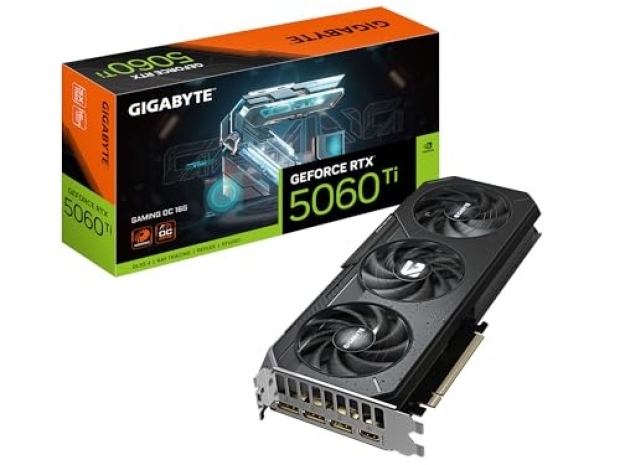Despite the official price, real-world availability is expected to be a different story. GPU launches continue to suffer from stock shortages, scalping and inflated pricing. The RTX 5060 Ti, launched in April, came in at $379 and $429 for 8GB and 16GB versions respectively. Early stock was limited and cards are still selling for $50 to $100 above Nvidia’s suggested pricing.
Unless Nvidia has made a rare move and massively upped production, the same premium pricing is likely to hit the 5060.
The RTX 5060 gets 3,840 CUDA cores, a 2,497 MHz boost clock and 8GB of GDDR7 memory on a 128-bit bus. That gives it a memory bandwidth of 448GB/s, matching the 5060 Ti and significantly above the older 4060’s 272GB/s. Power draw comes in at 145 watts.
It is a clear improvement over the 4060 on paper but sticks with the same 8GB memory cap, which is already becoming a bottleneck in some games at 1440p and 4K. Nvidia’s refusal to move budget cards to 12GB will limit long-term viability.
Even so, cards in the xx60 range have always been the backbone of Steam’s most used hardware. The 3060, 4060 and 2060 all sit near the top of Valve’s charts, with laptop variants also dominating. If Nvidia can keep stock flowing and resist letting board partners crank prices too far, the RTX 5060 is likely to climb those charts quickly.
| RTX 5060 Ti | RTX 4060 Ti | RTX 5060 | RTX 4060 | RTX 5050 (leaked) | RTX 3050 | |
|---|---|---|---|---|---|---|
| CUDA Cores | 4,608 | 4,352 | 3,840 | 3,072 | 2,560 | 2,560 |
| Boost Clock | 2,572 MHz | 2,535 MHz | 2,497 MHz | 2,460 MHz | Unknown | 1,777 MHz |
| Memory Bus Width | 128-bit | 128-bit | 128-bit | 128-bit | 128-bit | 128-bit |
| Memory bandwidth | 448GB/s | 288GB/s | 448GB/s | 272GB/s | Unknown | 224GB/s |
| Memory size | 8GB or 16GB GDDR7 | 8GB or 16GB GDDR6 | 8GB GDDR7 | 8GB GDDR6 | 8GB GDDR6 | 8GB GDDR6 |
| TGP | 180 W | 160 W | 145 W | 115 W | 130 W | 130 W |




